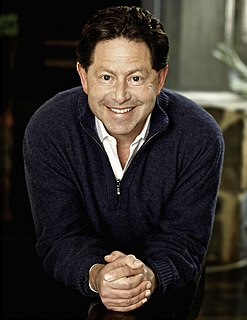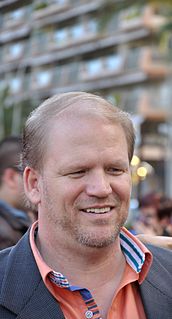A Quote by Bobby Kotick
The most important thing we do to encourage innovation is give people the freedom to fail. And I think you can articulate that and establish that as a value in a lot of different ways. I don't want to say celebrate the failures, but in a lot of respects, it's sort of that.
Related Quotes
In some ways I think it [the strike] was important. I'm not sure that "worth it" is the right term, but it was important. A lot of people lost a lot of things - I was greatly concerned for our crews. Those are the people who really sort of paid. A lot of us in quiet ways did everything that we could to help people pay mortgages.
Well, in fact if you look at the Trump voters, you take a look at their attitudes it's not all that different. In some respects they're similar. They're an older version of the Sanders people. So a lot of it is racist and you have that sort of thing, but if you look at their views on say health, education, and so on, it's kind of the same as Sanders.
I think it's interesting that a lot of times people want celebrities to give back in the way that they want them to give back. They want them to give money to the cause they think is important and when that doesn't happen they say, "Oh, they're not doing anything." People think celebrities are going to solve their problems. People think because someone is famous or an athlete or a politician that the solution begins with them. All they're there to do is sell you a product.
I write a lot on airplanes actually because it's completely isolating; there's no one to talk to, there's nothing to do. And then I think a lot of it sort of comes out sitting down with the people I'm co-writing with and talking to them about what I'm going through and what I want to say. It just sort of happens; every song came about in a completely different yet organic way.
We [film supervisors] always try to encourage discussion in the room because a lot of times newer animators who are just out of school or people come from other studios, they're gonna have different points of view and we want to make sure we're vetting all the ideas to get the best ones. A lot of people are shy about speaking up if this is their first time at Pixar or if they don't have a lot of experience, so we try to encourage that.
A lot of singers don't really know who they are. They have this massive insecurity and this massive ego and they are sort of pulled between both. I mean, why do you want a lot of people to look at you all the time and listen to you? There is something going on there, there is sort of need to express and attention. It's not just ego, it's some sort of complex thing and sometimes you create characters to say something you want to say and then you just throw yourself into that.
If for you the most important thing is to make a lot of money, then you don't want to take a certain type of risk. If, on another hand, the most important thing to you is to make people around you have a more fulfilled life, then there is a different set of things that are important to you. Unless you really know that about yourself, you will never be able to appropriately assess risk.
I've failed a million times on stage. I've listened to notes that I knew weren't right. I've pitched ideas and let other people change them, knowing that it was the wrong choice. The question you have to ask yourself is: How do you want to fail? Do you want to fail in a way that feels like it respects your tastes and value system?



































